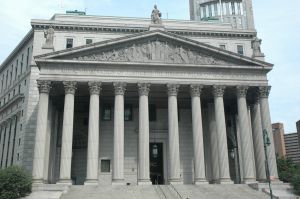 A Last Will and Testament is an important document since it is meant to express in writing a person’s disposition of his estate. A Will is an embodiment of a testator’s intentions. The document may contain many different provisions and dispositions of assets. For example, there may be legacies disposing of a specific amount of money to a beneficiary or a specific personal asset such as jewelry or art-work. Also, specific devises of real property may be made. A Will can contain testamentary trusts or other trusts such as a supplemental needs trust. A testator typically includes provisions nominating executors, trustees and guardians for children.
A Last Will and Testament is an important document since it is meant to express in writing a person’s disposition of his estate. A Will is an embodiment of a testator’s intentions. The document may contain many different provisions and dispositions of assets. For example, there may be legacies disposing of a specific amount of money to a beneficiary or a specific personal asset such as jewelry or art-work. Also, specific devises of real property may be made. A Will can contain testamentary trusts or other trusts such as a supplemental needs trust. A testator typically includes provisions nominating executors, trustees and guardians for children.
As discussed, in many articles in the New York Probate Lawyer Blog, a Will must be filed in the Surrogate’s Court and go through the probate process. Once a Will is admitted to probate, it has been validated by the Court and its terms and provisions must be adhered to by the appointed Executor.
During the probate proceeding various individuals may object to the probate of a Will. Usually distributees (i.e. next of kin) have a right to file objections to a Will although persons whose interests from a prior Will which have been adversely affected may also be entitled to file objections. The basis for objections include improper execution, lack of testamentary capacity and undue influence. These objections result in a Contested Will.
 New York Probate Lawyer Blog
New York Probate Lawyer Blog











